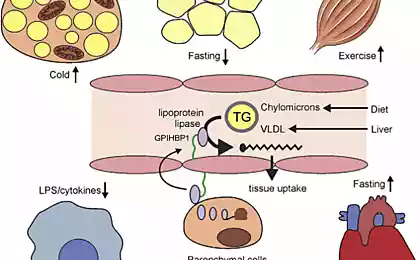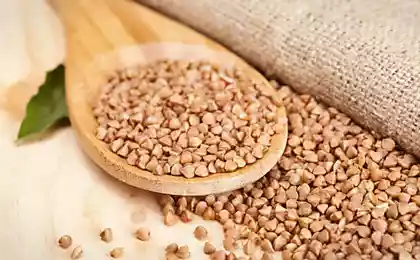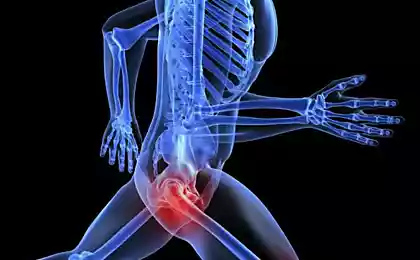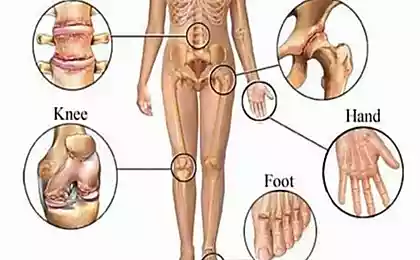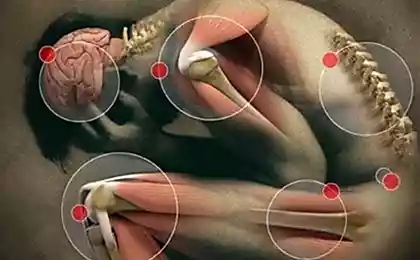185
Chondroprotectors: Do they really help the joints and ligaments?

Joints and ligaments play a key role in our daily movement and overall mobility. With age, injury, or chronic illness, these structures can undergo significant wear and tear, leading to pain and limited movement. In search of solutions to maintain joint health, many turn to chondroprotectors. But do these supplements really live up to expectations and benefit our joints and ligaments? Let's figure it out.
What are chondroprotectors?
Chondroprotectors are a group of additives designed to maintain and restore joint cartilage tissue. The main components of chondroprotectors are glucosamine, chondroitin, MSM (methylsulfonylmethane) and collagen. These substances contribute to the regeneration of cartilage, reduce inflammation and improve the overall condition of the joints.
“Chondroprotectors can play a supporting role in maintaining joint health, but their effectiveness depends on the individual characteristics of the body and the degree of wear and tear of the joints,” said Dr. Elena Ivanova, a rheumatologist.
How do chondroprotectors work?
Chondroprotectors work by providing the body with the necessary building blocks to repair cartilage tissue. Glucosamine promotes the synthesis of glycosaminoglycans, which are the main components of cartilage. Chondroitin maintains cartilage water balance and elasticity, and MSM helps reduce inflammation and pain. Collagen, in turn, helps strengthen ligaments and tendons.
Research and effectiveness
The effectiveness of chondroprotectors is ambiguous and is actively discussed in scientific circles. Some studies suggest that chondroprotectors can slow the progression of osteoarthritis and reduce pain. However, other studies do not find a significant difference between taking chondroprotectors and placebo.
“There is evidence that chondroprotectors may be useful in some forms of osteoarthritis, but the results of the studies vary and more data is needed,” said Dr. Sergey Petrov, an orthopedist.
Popular types of chondroprotectors
- Glucosamine: One of the most common chondroprotectors, which contributes to the restoration of cartilage tissue.
- Chondroitin: Supports the structure and elasticity of cartilage, and also reduces inflammation.
- MSM (Methylsulphonylmethane): A natural source of organic sulfur helps reduce inflammation and improve joint health.
- Collagen: The main protein of the connective tissue, helps strengthen ligaments and tendons.
Advantages and disadvantages of chondroprotectors
Chondroprotectors have a number of advantages, but also have certain disadvantages:
- Advantages:
- Support and repair of cartilage tissue.
- Reducing pain and improving joint mobility.
- Strengthen ligaments and tendons.
- Disadvantages:
- Ambiguous results of research on effectiveness.
- Possible side effects, such as stomach upset or allergic reactions.
- The high cost of some supplements.
Recommendations for the use of chondroprotectors:
- Consult your doctor before starting your appointment, especially if you have a chronic condition.
- Follow the dosage recommendations indicated on the package or prescribed by your doctor.
- Pay attention to possible allergic reactions and stop taking them when they appear.
- Combine chondroprotectors with physical activity and a healthy diet for the best results.
- Monitor your joints regularly and tell your doctor about any changes.
Expert opinion
Many experts agree that chondroprotectors may be useful in certain cases, but their effectiveness varies. It is important to take into account the individual characteristics of the body and the degree of wear of the joints.
“Chondroprotectors may be part of a combination of therapies to support joint health, but should not be relied on solely.” It is important to combine their reception with other methods of treatment and prevention. — Dr. Marina Kovaleva, rheumatologist.
User stories
Many people share their experiences using chondroprotectors:
- Anna, 55: After starting glucosamine, I noticed a significant reduction in knee pain and improved mobility. It helped me to continue an active lifestyle. ?
- Igor, 45 years old: “Chondroprotectors were a lifeline for me after a knee injury. Together with physical therapy, they accelerated the recovery process. ?
- Maria, 60: “The combination of chondroprotectors and proper nutrition helped me control my osteoarthritis symptoms and reduce pain.” ?
Conclusion
Chondroprotectors are an important category of supplements to support joint and ligament health. Despite the mixed results of studies, many users note their positive effect on the condition of the joints. It is important to remember that the effectiveness of chondroprotectors depends on the individual characteristics of the body and the degree of wear of the joints. Consultation with a doctor before starting a dosage, proper adherence to dosages, and combination with other treatment and prevention methods can significantly increase their benefit.
“Joint health is a complex process that requires careful attention and the use of various support methods. Chondroprotectors can be a useful tool in this process. — Dr. Sergey Ivanov, orthopedist.
If you are considering using chondroprotectors, be sure to consult a medical professional and follow their recommendations for the best results.
These Habits Will Help Keep Your Heart Healthy Until Old Age
S.T.A.L.K.E.R. 2: Between Legend and Censorship


